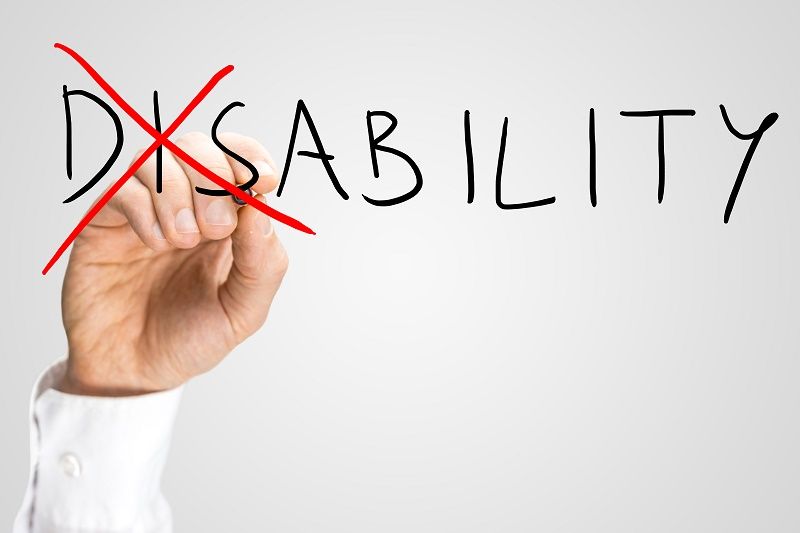- Published on
- Apr 26th 2022
Developmental Disabilities: What, Where and How to deal with them by Anjali Shroff

It’s time we take our focus off disabilities and place it on capabilities, so we can see the person first - Robert M. Hensel
Developmental Disabilities
According to the CDC, 1 in 6 children in the US have some form of Developmental Disabilities (DD). A group of conditions that indicate physical, learning, language, or behavior issues. Scary!! Many of these disabilities are invisible to the naked eye. A few invisible DD are Autism Spectrum Disorder (ADD), ADHD (Attention Deficit Hyperactivity Disorder), Pervasive DD, and Chromosomal Impairment.
New parents are often in a dilemma when they see their infant reaching milestones at a different pace or not meeting milestones. The first step in solving this dilemma is to talk to the pediatrician about these concerns and use the questionnaire to specify particular delays . If the pediatrician sees any red flag, S/he will refer the parents to the specialists.
North Carolina offers an evaluation for DD through the Children's Developmental Service Agency (CDSA).
Ages up to 3 years:
Children up to 3 years of age can receive early intervention services if eligible through the North Carolina Infant-Toddler Program (NC- ITP).
Age between 3 to 5 years:
Children between 3 to 5 years of age with developmental disabilities can receive early intervention services through through Wake County Public School System (WCPSS). If you have concerns about your child’s development, many specialists and centers in Wake County evaluate and provide necessary services. You can find few of those resources below.
Coping and Understanding the Challenges
Once parents receive the diagnosis of DD for their child, many parents have questions about how to cope up with these challenges, that are either short term or lifetime. These challenges change family dynamics. Every parent is different. Many parents go through phases of denial, anger, depression, and acceptance. I will highly recommend parents educate themselves about the child's delays, the condition, and the challenges that come with this condition. Here are a few things that parents can do. Attend support groups, webinars, workshops, and talk to experts in the area. Above all, always listen to your child, study their behaviors, study and learn about their yeses and nos. Many times experts "in your head" from the webinars and workshops will voice their recommendations, but follow your child’s lead.
Support groups and organizations
ASHA FOUNDATION
About: Asha Foundation is a volunteer driven non-profit organization started by parents who have differently abled individuals in the family.
MISSION: To raise Awareness and Acceptance for differently-abled individuals and to Empower them by means of providing life-enriching workshops, inclusive programs with similar age groups in our community, and training workshops for parents and other caregivers. Currently, Asha Foundation is serving families in the Greater Triangle area.
Donations: Click here to donate
Facebook: RTP Special Needs Families Support Group. Consider joining this group, to share your experience as well as participate in group activities.
About: Asha Foundation is a volunteer driven non-profit organization started by parents who have differently abled individuals in the family.
MISSION: To raise Awareness and Acceptance for differently-abled individuals and to Empower them by means of providing life-enriching workshops, inclusive programs with similar age groups in our community, and training workshops for parents and other caregivers. Currently, Asha Foundation is serving families in the Greater Triangle area.
Donations: Click here to donate
Facebook: RTP Special Needs Families Support Group. Consider joining this group, to share your experience as well as participate in group activities.
Contact: Anjali Shroff, Founder, President, Executive Director of Asha Foundation - RTP Special Needs Families
Resources:
- The Children's Developmental Service Agency (CDSA)
- North Carolina Infant-Toddler Program (NC-TIP)
- Preschool Education Services - WCPSS
- TEACCH-Chapel hill
- Duke Autism Clinic
- MAPs - Medical Academy of Pediatric Special Needs/Developmental Pediatricians
- Dr. Moran - Carolina Developmental pediatrics
Content for this article is provided to us by Anjali Shroff, Founder, President, Executive Director of Asha Foundation - RTP. ChaiBuzz is only providing this as a content that benefits readers. This is not an endorsement of any views. There is no monetary compensation involved.